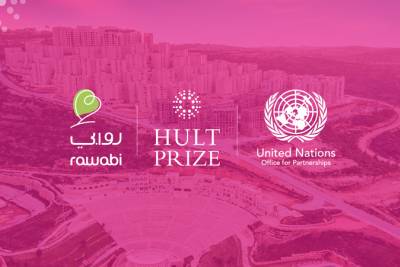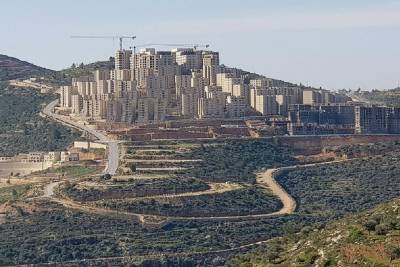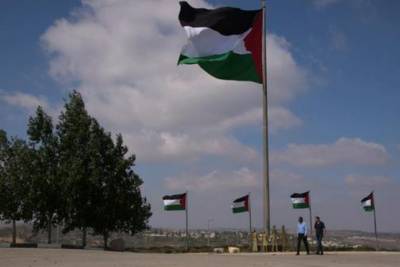The city that rocks the Palestinian society
The Calcalist - Danny Rubinstein - In the New city of Rawabi, 20 minutes away from Modi’in, Arab couples are going to live away from both family and tradition.
During the coming Summer, the first tenants are expected to dwell in the new Palestinian city of Rawabi, north of Ramallah, a revolutionary project in terms of Palestinian housing and real estate sectors, which the Israeli authorities delay or rather inhibit its completion.
Amir Dajani, one of the project managers, said the delays in occupancy of dwellers, stemmed from two problems: 1- connecting the houses of the city with the water network and 2- expanding the access roads to the city. Both issues relate to Israel’s control over the West Bank water supply and its control over roads which pass in Area C under Israel’s total control, those same roads that connect Rawabi to Ramallah.
Moreover, in the past there were objection to the project, especially by the settlers.
So far, 625 apartments are sold, out of the project’s final capacity which falls within the scope of 6,000 housing units and with a total population that may reach 25 thousand. Housing prices range from 65 thousand to 110 thousand dollars and the sale is made in the sophisticated and luxurious show center.
A Billion $ project funded by the Qataris
The project is been carried out by "Bayti Real Estate and Construction Co. owned by entrepreneur businessman Bashar al – Masri with a billion dollar funded by Qatar. Even if all the apartments will be sold as planned, it is doubtful whether it is economically worthwhile the investment: work on the different phases of the project lasted seven years and marketing of apartments started very late, in the meantime, the consideration of the Government of Qatar was political rather than purely economic.
The main significance of the Rawabi project is the change it has created in Palestinian real estate market. First of them, is the construction of the first pre- planned city. Everything is been carefully and meticulously set: internal roads, parking lots, schools, mosques, shopping centers and more.
The real dramatic and revolutionary change is the attempt to deviate from the traditional construction patterns of the conservative Palestinian society. Traditionally, within the Arab society in general and in the Palestinian one in particular, the main factor that sets the rule with regard to the nature of the residential building was the family. Residence is determined by tribal affiliation, with each extended family living in a common area. Part of the tradition as well, is that the father in any family desires and sometime imposes on their sons and daughters to marry their cousins.
Small families, young, upper middle class
Even today more than 50 % of marriages in Palestinian society are between cousins, and in many of these cases it goes according to the “Badal” method, (exchanges). This is to say that a father convinces his son to marry his cousin, and in exchange the father asks his daughter to marry the bride brother, who is her cousin too. Almost 100 % of cases the married son lives in the building of his father, whereas the daughter moves to quarters of the man she married.
In Rawabi this phenomenon will no longer exist. Most homebuyers come from relatively small families, unrelated - young parents with two – three children. Many of them come from the middle to high class with university degrees, and a relatively high proportion (9 %) of single men and women. "Like in your Modi’in" says Dajani, pointing towards the Israeli city at a distance of 20 minutes drive from Rawabi.
To view original article, Click Here.



